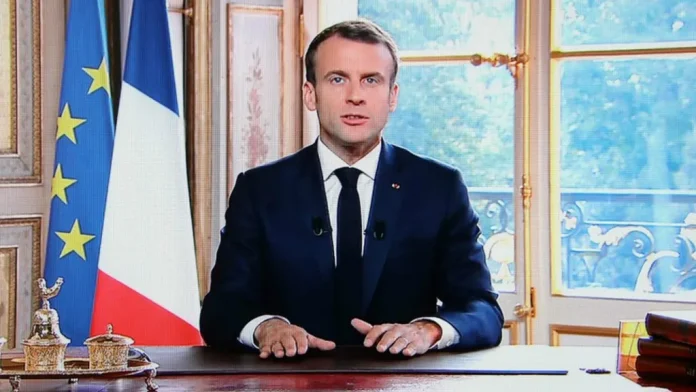Two people were killed and three injured in New Caledonia as the result of the violent actions, French officials reported.
Unrest in New Caledonia continues for a third day over constitutional reform. The changes have infuriated the archipelago, which has long sought independence. The president also reportedly cancelled a trip he had planned to northwestern France on Wednesday as he focused on the crisis.
French authorities in the territory claimed more than 130 people had been arrested and more than 300 injured since Monday in New Caledonia violence that raged across the archipelago. For decades, tensions have existed there between indigenous Kanaks seeking independence and descendants of colonisers who want to remain part of France.
The special meeting of the defence and security council called by Macron usually brings together a limited group of officials, including Prime Minister Gabriel Attal and the ministers of defence, interior, economy and foreign affairs.
Minister of Interior and Overseas Territories Gérald Darmanin said one hundred gendarmes evacuated during the unrest.
Calm must absolutely be restored.
On Tuesday, the French Interior Ministry sent police reinforcements to New Caledonia. Two people were killed and three were seriously injured in overnight rioting, the territory’s top French official, High Commissioner Louis Le Franc, reported.
Violence continue
Clashes between police and protesters continue in and around Nouméa, despite a curfew and a ban on assembly. Schools are closed “until further notice” and the main airport La Tontoura “remains closed to commercial flights.” According to Le Franc, some residents of the capital have formed “self-defence groups” to defend their homes and businesses.
The situation is not serious, it is very serious. We have entered a dangerous spiral, a deadly spiral.
The New Caledonia violence began on Monday with protests against French attempts to expand the electoral rolls, which would benefit pro-French politicians in New Caledonia. It would also further marginalise the Kanak people, who once suffered from strict segregation policies and widespread discrimination.
Early Wednesday morning, the French National Assembly passed a constitutional amendment reforming the territory’s electoral body. 351 lawmakers voted in favour of the bill, while 153 voted against it. Pro-independence representatives called for calm and condemned the vote in the National Assembly.
Macron also called on all local politicians to engage in dialogue and propose changes to the bill. He said he would convene the Congress, a joint meeting of lawmakers from both houses of the French parliament, by the end of June to amend the constitution.
Nicolas Dupont-Aignan, leader of the Debout la France (France Arise), condemned the New Caledonia violence in his official X account:
A violent minority in New Caledonia will not intimidate the deputies who, today, will vote to unfreeze the electoral body to restore democracy. By referendum the Caledonians voted YES to France three times. Full support for law enforcement. Let’s not give in.
He also stated that the “violent minority” did not accept the “verdict of the ballot boxes.” Dupont-Aignan recalled that the Caledonians voted against independence three times in 2018, 2020 and 2021.
Today the government and Parliament must not give in to the intimidation of the rioters and unwaveringly support our police, gendarmes and firefighters mobilised on the ground.
New Caledonia
The bill would allow residents who have lived in New Caledonia for 10 years to vote in provincial elections. People of European descent in New Caledonia distinguish between the descendants of the colonisers and the descendants of the many prisoners sent to the territory by force. The vast archipelago of about 270,000 people east of Australia is 10 time zones ahead of Paris.
New Caledonia became French in 1853 under Emperor Napoleon III, Napoleon’s nephew and heir. After World War II, it became an overseas territory. In 1957, all Kanaks received French citizenship.
The rival factions singed a peace agreement in 1988. Ten years later, France promised to grant New Caledonia political authority and broad autonomy and to hold up to three consecutive referendums.
The three referendums took place between 2018 and 2021. However, the majority of voters chose to remain within France rather than favour independence. The pro-independence Kanaks rejected the results of the last referendum in 2021, which they boycotted because it was held at the height of the COVID-19 pandemic.
